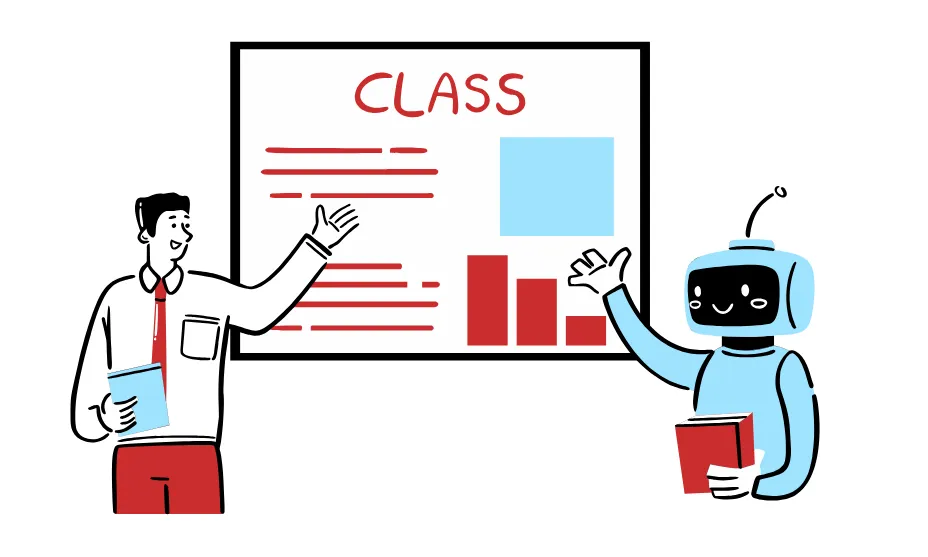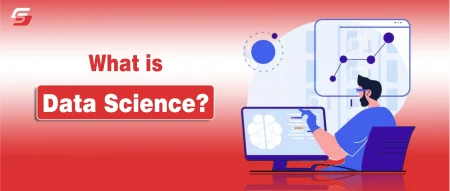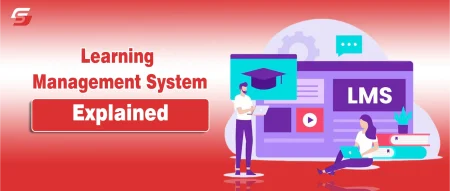Struggling to keep up with lessons, losing focus during online classes, or feeling like your study materials just don’t match your learning style? You’re not alone, and this is where modern learners want real support. So many people are searching for how artificial intelligence is boosting learning and whether these new tools actually solve these day-to-day learning challenges.
Artificial intelligence now works behind the scenes in classrooms, apps, and online platforms to personalize lessons, predict where students struggle, and deliver instant help when they need it most. This guide explains how AI upgrades learning, what real advantages students gain, and why this technology has become one of the most important forces shaping modern education.
What Is AI in Education?
Artificial intelligence in education refers to digital systems that analyze learning data and adjust teaching tasks based on student needs. AI in education uses structured patterns, academic performance records, language inputs, and classroom behavior signals to guide how lessons are delivered.
AI tools in learning environments help educators manage repetitive tasks, personalize instruction, and monitor student progress. Modern AI-based learning platforms also assist students with real-time support, adaptive study materials, and automated explanations. These systems increase learning precision, reduce administrative load, and support more consistent academic outcomes.
How Is AI Transforming Learning?
Artificial intelligence transforms learning by personalizing instruction, automating assessments, supporting engagement, and improving accessibility. Many AI-powered education tools function like advanced learning management systems. AI systems in education deliver exceptional study paths, detect learning gaps, and provide recommendations that match a student’s pace and style. AI tutoring tools also supply immediate feedback, which improves comprehension and reduces delays in correction.
Key ways AI transforms learning
- Personalized Learning Paths:
AI-powered learning systems adjust lesson difficulty, suggest practice tasks, and track improvement over time. - Real-Time Feedback:
AI assessment tools review responses instantly and highlight errors, patterns, and missed concepts. - Adaptive Tutoring Support:
AI tutoring assistants explain topics, answer questions, and simulate one-on-one instruction. - Automated Grading:
AI grading tools evaluate quizzes, assignments, and short responses, reducing manual teacher workloads. - Engagement and Motivation Tools:
AI-driven gamification, reminder systems, and progress trackers support consistent study habits. - Accessibility Improvements:
AI translation tools, speech-to-text features, and reading support engines help students with diverse needs.
How AI impacts learning outcomes
| Area of Impact | How AI Supports It |
| Comprehension | AI breaks down lessons into smaller learning steps and clarifies difficult topics. |
| Retention | AI uses spaced practice and adaptive revision plans. |
| Engagement | AI recommends interactive tasks and reduces passive learning. |
| Teacher Support | AI handles repetitive grading and reporting tasks. |
AI Applications in Education
AI applications in education support learning by adjusting instruction, automating evaluation, increasing engagement, and expanding access to high-quality study materials. AI-powered systems analyze student progress, identify performance gaps, and assist teachers with class management, lesson planning, and grading tasks.
Personalized Learning Systems
Personalized learning systems use adaptive learning tools, intelligent tutoring features, and tailored course recommendations to match instruction with student needs. These systems adjust learning paths, analyze performance patterns, and deliver study material that fits each learner’s progress.
A: Adaptive learning
Adaptive learning systems adjust lesson difficulty, practice questions, and revision schedules based on student responses. Adaptive learning platforms use performance trends to identify weak areas, provide additional resources, and keep learners at an optimal challenge level.
B: Intelligent tutoring
Intelligent tutoring systems simulate one-on-one support by providing explanations, guiding problem-solving steps, and offering real-time study assistance. These systems analyze how learners approach tasks and deliver targeted hints, examples, and clarification where needed.
C: Course recommendations
Course recommendation tools suggest relevant subjects, modules, and practice sets by examining interests, past performance, and study patterns. These tools help students choose courses that fit their goals and direct them toward lessons that support long-term learning success.
AI in Assessments & Feedback
AI in assessments and feedback improves accuracy, reduces grading time, and supports faster identification of learning gaps. These systems review assignments, track progress, and help teachers maintain consistency across evaluations.
A: Automated grading
Automated grading tools review quizzes, written answers, and digital assignments. Automated grading systems reduce manual scoring time and improve consistency by applying the same evaluation rules across all submissions.
B: AI feedback
AI feedback systems provide immediate comments on student work. AI feedback tools highlight errors, recommend corrections, and help learners understand concepts more clearly without waiting for instructor responses.
C: Learning analytics tools
Learning analytics tools monitor class performance, identify trends, and present insights on student engagement. These tools help teachers understand where learners struggle and allow early intervention when performance drops.
AI for Engagement & Interaction
AI for engagement and interaction increases participation through conversational support, interactive challenges, and immersive learning environments. These tools help maintain student motivation and reduce passive learning habits.
A: Chatbots
Chatbots in education give learners instant answers, reminders, and explanations. Chatbots help students navigate assignments, clarify instructions, and receive support during self-study sessions.
B: Gamification
Gamification systems use challenges, progress badges, and reward structures to increase motivation. Gamified learning platforms keep students engaged, encourage consistent practice, and make lessons more interactive.
C: Virtual learning environments
Virtual learning environments create immersive spaces where students can explore simulations, practice skills, and collaborate. These environments improve participation and help learners understand complex topics through visual and interactive experiences.
AI Content Creation
AI content creation tools generate study materials, quizzes, summaries, and practice explanations. These tools help teachers produce learning resources quickly and maintain consistent quality across lessons.
AI-generated learning content
This type of learning content creates worksheets, flashcards, explanations, and topic summaries. AI-generated content tools save preparation time, align materials with curriculum goals, and deliver resources that match each student’s ability level.
AI Features in Platforms & Tools
Artificial intelligence in modern learning platforms improves how learners access lessons, practice skills, and receive support. AI-driven EdTech systems use pattern detection, automated assistance, adaptive pathways, and predictive insights to increase learner performance and reduce time spent on repetitive tasks.
Leading EdTech Platforms (Duolingo, Quizlet)
Duolingo uses AI models to adjust difficulty, predict retention, and personalize lesson flows. Duolingo’s adaptive engine identifies learner accuracy, response patterns, and vocabulary strength to schedule practice sessions that match each user’s memory cycle.
Key functions include:
- Lesson difficulty adjustment
- Speech recognition for pronunciation
- Smart reminders for retention
Quizlet applies AI study assistants to generate practice tests, flashcards, and review sets. Quizlet’s machine-powered tools analyze learner mistakes and create targeted exercises that improve concept recall. Quizlet’s “Learn Mode” uses performance tracking to decide when a user should review or progress.
Learning Management Systems (Google Classroom, Microsoft Education)
Google Classroom integrates AI suggestions that support assignment organization, plagiarism detection, and learning recommendations. Google Classroom uses smart categorization, automated sorting, and predictive task reminders to reduce teacher workload and improve student completion rates.
Microsoft Education enhances digital classrooms with AI reading coaches, real-time transcription, and accessibility tools. Microsoft’s Reading Progress measures accuracy, fluency, and pacing to support literacy improvement. Microsoft Teams for Education uses intelligent organization features that simplify communication and assignment distribution.
Learning Platforms (BYJU’S, Coursera, Udemy)
BYJU’S uses AI learning journeys that adjust lesson structure, speed, and difficulty for K–12 learners. BYJU’S content engine evaluates conceptual gaps, activity patterns, and quiz results to deliver personalized practice sessions and follow-up videos.
Coursera integrates AI recommendation systems that match learners with courses, specializations, and professional certificates based on career goals and learning history. Coursera’s algorithm analyzes skill interests, course completions, and global trends to deliver relevant learning paths.
Udemy applies AI-driven recommendations and progress tracking to help learners discover suitable courses and improve mastery. Udemy’s personalization model reviews course ratings, watch patterns, and user goals to suggest better learning options.
Benefits of AI in Learning
Artificial intelligence in education improves academic performance, optimizes learning pathways, reduces classroom workload, and strengthens student engagement. These benefits help schools, teachers, and learners achieve consistent outcomes across digital and blended learning environments.
Boosting Student Performance
AI-driven learning tools improve student performance by identifying skill gaps, predicting weak areas, and adjusting practice intensity. These systems use real-time tracking to measure accuracy, learning speed, and topic mastery.
Key benefits include:
- Targeted practice based on learner weaknesses
- Faster concept reinforcement through adaptive lessons
- Continuous insights that guide improvement
Performance analytics provide teachers with clear indicators of progress, allowing them to intervene before students fall behind. These analytics simplify decisions about pacing, review sessions, and support materials.
Personalized Learning Experiences
Adaptive learning platforms personalize lessons by responding to each learner’s pace, preferences, and comprehension level. Adaptive systems review past attempts, behavior patterns, and quiz results to tailor content sequencing and difficulty.
Intelligent tutoring systems offer one-to-one guidance through hints, explanations, and practice questions. These tutors simulate human-style assistance while maintaining consistency and accuracy.
Course recommendation engines personalize learning paths by suggesting modules, videos, and assessments that match a student’s skills and goals. These engines increase relevance and reduce time spent searching for suitable resources.
Improved Engagement & Retention
Gamification features increase engagement by using progress badges, levels, and achievement rewards. These features motivate learners to complete lessons and revisit challenging topics.
AI chatbots support interaction by providing on-demand help, quick answers, and study reminders. Chatbots reduce response delays and encourage continuous learning.
Virtual learning environments enhance retention through simulations, interactive tasks, and immersive digital activities. These environments help students understand complex concepts through hands-on experiences.
Teaching & Administrative Efficiency
Automated grading systems reduce teacher workload by checking quizzes, assignments, and objective tests. These systems ensure consistent evaluation and fast result delivery.
AI scheduling tools streamline administrative tasks, such as lesson planning, attendance tracking, and resource allocation. These tools simplify routine responsibilities and give teachers more time for personalized instruction.
Learning analytics dashboards give educators a clear overview of class progress. These dashboards highlight trends, performance issues, and engagement levels, allowing teachers to optimize teaching strategies without manual data processing.
Final Thoughts | How AI Is Shaping the Future of Learning
Artificial intelligence is redefining how students learn, how teachers teach, and how educational platforms deliver knowledge. AI-powered tools, from adaptive learning systems to intelligent tutoring, automated grading, chatbots, and virtual learning environments, create faster, clearer, and more personalized learning experiences.
These technologies help students strengthen performance, improve focus, and stay engaged, while giving educators accurate insights that streamline planning and support individual needs. As AI continues to evolve, its role in education will only grow, making learning more efficient, more accessible, and more aligned with the real abilities and goals of each learner.
FAQs
AI increases engagement using chatbots, gamification, and interactive virtual learning environments.
Yes, AI generates educational materials, practice exercises, summaries, and topic explanations for students.
EdTech platforms like Duolingo, Quizlet, Google Classroom, Microsoft Education, BYJU’S, Coursera, and Udemy use AI features.
AI identifies learning gaps, adjusts lessons, and provides targeted practice to strengthen comprehension and retention.
AI tailors content, adjusts lesson difficulty, and recommends study paths based on performance and preferences.
AI reduces grading time, streamlines administrative tasks, and provides analytics to guide instruction effectively.










